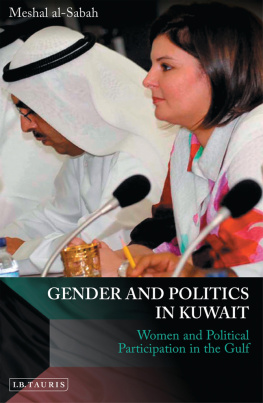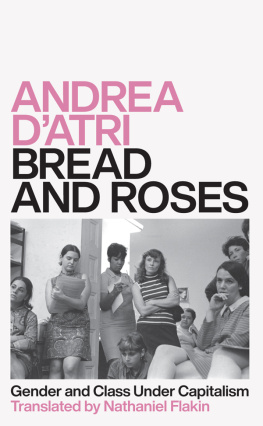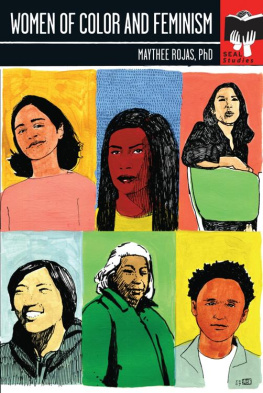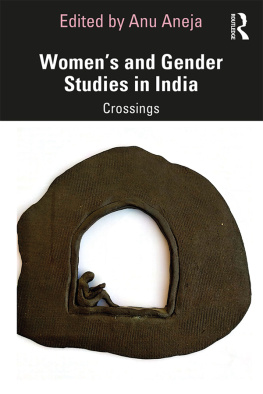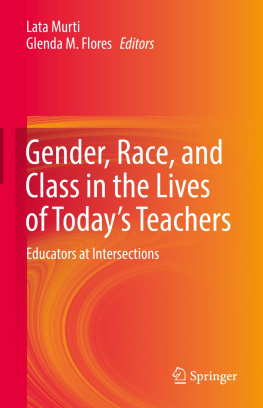
LONDONS WOMEN TEACHERS
Dr Copelman has, with verve and imagination, moved outside conventional subdisciplinary boundaries in conceiving teachers as not only part of the history of education, but also as figures in womens history, urban history, and the history of the lower middle class.
(Ellen Ross, Ramapo College of New Jersey)
Elementary school teaching opened up opportunities for professional careers to thousands of lower-middle-class women in London at the turn of the century. Women of this class have been largely absent from the historical record. Dina M. Copelman shows how the lives they led, while fascinating in their own right, also shed light on much wider historical debates.
Copelman argues that teachers challenged gender conventions relating to work and domesticity, and demonstrates that separate spheres ideology does not adequately represent womens roles in society. As independent women with some disposable income, teachers offer new perspectives on metropolitan life in the expanding world of material goods and mass recreation. This groups vigorous involvement in the suffrage movement also provides compelling evidence of the movements multi-class support. In her nuanced examination of these areas Copelman emphasizes how women not only built communities, but were also willing to engage in conflict with one another.
Londons Women Teachers contributes to the social history of education and social policy, presenting a wealth of archival research and addressing the expanding literature on gender and the role of education in the development of the modern welfare state. The book will appeal to those interested in British and womens history, and the history of education.
Dina M. Copelman is Associate Professor of History at George Mason University and the author of several articles on late Victoria11 society.
LONDONS WOMEN TEACHERS
Gender, class and feminism 18701930
Dina M. Copelman
First published 1996
by Routledge
Published 2013 by Routledge
2 Park Square, Milton Park, Abingdon, Oxon OX14 4RN
Simultaneously published in the USA and Canada
by Routledge
711 Third Avenue, New York, NY, 10017, USA
Routledge is an imprint of the Taylor & Francis Group, an informa business
1996 Dina M. Copelman
Typeset in Palatino by
PontingGreen Publishing Services, Chesham, Bucks
All rights reserved. No part of this book may be reprinted or reproduced or utilized in any form or by any electronic, mechanical, or other means, now known or hereafter invented, including photocopying and recording, or in any information storage or retrieval system, without permission in writing from the publishers.
British Library Cataloguing in Publication Data
A catalogue record for this book is available from the British Library
Library of Congress Cataloguing in Publication Data
Copelman, Dina Mira.
Londons women teachers : gender, class, and feminism, 18701930/Dina M. Copelman.
p. cm.
Includes bibliographical references (p.) and index.
1. Women teachersEnglandLondonHistory19th century.
2. Women teachersEnglandLondonHistory20th century.
3. Feminism and educationEnglandLondonHistory19th century.
4. Feminism and educationEnglandLondonHistory20th century.
I. Title.
LB2837.C65
371.10082dc20 9532403
CIP
ISBN 13: 978-0-415-01312-3 (hbk)
To Lilian Garvin Copelman and Robert Copelman, with love and gratitude
CONTENTS
PlatesBetween pages 124 and 125
The typical SBL school Bellenden Road school, 1908
Infants class, number teaching by stick laying Hugh Myddleton School, 1906
Lessons in housewifery: bathing and dressing the baby Childeric Road school, 1908
Examination for head lice Chaucer Street school, 1911
A school staff group from the 1880s. Girl seated at front may be a pupil teacher
Female staff Hugh Myddleton School, 1906
Tables
Occupations of pupils parents: London Fields, Hackney, Pupil Teachers Centre
Social origins of pupil teachers at London Fields Centre, 188790
Occupations of parents of bursars and pupil teachers
Social origins by class of bursars and pupil teachers
A comparison of teachers salaries
This book took a long time to write. And for every month and year that I labored on it, institutions, family, friends and colleagues provided support, encouragement and a multitude of services to help this project come to light. I will try to repay a fraction of my debts here.
The first incarnation of this work was a Princeton University doctoral dissertation. The excellent advice I received from my adviser Natalie Davis, and from the other members of my committee John Gillis, Jerrold Seigel and Judith Walkowitz provided me with a basic plan for revisions, as well as a model of intellectual community.
For both the dissertation and the book I benefited from the help of numerous individuals, libraries and archives. In England, Anna Davin provided crucial advice on sources at the beginning of my research. I could not obtain a copy of her dissertation on London girlhood in time to include her findings in this book, but her volume on the subject, soon to be published, should add an enormous amount to our understanding of London education. The Greater London Record Office (GLRO) and the library at Hamilton House, headquarters of the National Union of Teachers (NUT), provided the key primary documents. At the GLRO an able and dedicated staff helped me locate treasures in the records of London education. The GLRO Photograph Collection also granted permission to reprint the pictures included here. At the NUT, librarians Jan Ayres, Janet Friedlander and Ian Cook provided a pleasant work environment as I toiled my way through the teachers press and various records of the NUT. Frances Widdowson, also of the NUT, supplied a crucial sounding board for some of my early ideas, and her own research and writing on women teachers served as a beginning point in numerous ways. The Library of the Institute of Education, London University, and especially Mr. Michael Humby, helped me locate and use the records of the National Union of Women Teachers. These were the main archives, but numerous others provided crucial material. Key among these I must acknowledge the help of Paul Thompson for letting me use the Edwardian Oral History Collection at Essex University; Michael Chater for help in using the library at Toynbee Hall; Malcolm Cole, archivist at Whitelands College; Virginia Malone of Avery Hill College; Mrs. B. Dawes for help in setting up interviews with retired teachers at Elstree Manor; and David Doughan at the Fawcett Collection. As usual, the staffs at the British Library, Colindale and the Public Record Office provided essential help. In the United States, Princeton University and the University of MissouriColumbia provided a strong secondary collection.
Many institutions and foundations provided financial support for this project. Princeton University contributed fellowship funds, while the Woodrow Wilson Foundation and the Council for European Studies helped with additional research money to complete the dissertation. The American Council of Learned Societies, the National Academy of Education with the help of the Spencer Foundation, and the Virginia Foundation for the Humanities and Public Policy all provided grants that allowed me to take time off to research and write. The University of MissouriColumbia and George Mason University also provided additional research funds.


